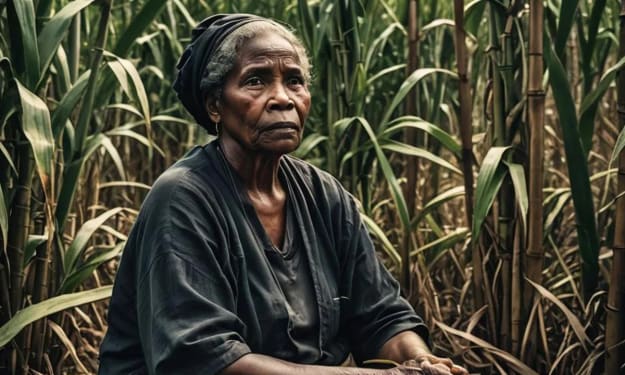Neglected Faces: Ladies Carrying out Life Punishments in America"
Neglected Faces

In the vast landscape of America's criminal justice system, there exists a group of women who have been handed the most severe punishment - life imprisonment. Each of these women has a unique story, a narrative that led them to a fate marked by incarceration for the remainder of their lives. In this article, we will explore the lives and crimes of some particular women in America who are serving life sentences, shedding light on their experiences and the complexities of the justice system.
Patricia Krenwinkel:
Patricia Krenwinkel gained notoriety as a member of the Manson Family, a cult led by Charles Manson. In 1971, she was convicted of seven counts of first-degree murder for her involvement in the brutal Tate-LaBianca killings in 1969. Krenwinkel, now in her 70s, has spent over five decades behind bars and is one of the longest-serving women inmates in California.
Judy Clark:
Judy Clark was sentenced to 75 years to life for her role as the getaway driver in the infamous 1981 Brink's armored car robbery in Nyack, New York. The incident resulted in the deaths of two police officers and a security guard. Despite not directly participating in the shootings, Clark was held accountable for her involvement. Over the years, she has undergone a transformation while behind bars, advocating for criminal justice reform and earning praise for her rehabilitation efforts.
Barbara Opel:
In 1985, Barbara Opel was convicted of murdering her husband in what she claimed was an act of self-defense against years of domestic abuse. Despite presenting evidence of the abuse she suffered, Opel was sentenced to life in prison without the possibility of parole. Her case highlights the challenges faced by women who assert self-defense in the context of abusive relationships within the criminal justice system.
Pamela Smart:
The case of Pamela Smart gained widespread media attention in the 1990s. In 1991, Smart was convicted of conspiring with her teenage lover to murder her husband, Gregg Smart. The trial was marked by sensationalism, fueled by Smart's affair with the young student. While serving a life sentence, Smart maintains her innocence and contends that she did not receive a fair trial.
Wonda Dee Harmon:
Wonda Dee Harmon, also known as "Punkin," was sentenced to life in prison for her involvement in drug-related activities in the 1990s. Harmon was part of a drug conspiracy that operated in several states. Her case raises questions about the fairness of sentencing for non-violent offenses, particularly in the context of the war on drugs.
Dr. Aafia Siddiqui, a Pakistani neuroscientist, was convicted in 2010 by a US court for attempted murder and assault of US personnel in Afghanistan. The incident occurred in 2008 when she was detained by Afghan security forces. She allegedly grabbed a rifle and fired at US personnel while in custody, although the details surrounding the event remain disputed.
Dr. Aafia's case has been highly controversial, sparking widespread protests and allegations of injustice. Many supporters believe she was unlawfully detained, tortured, and denied a fair trial. She was sentenced to 86 years in prison, adding to the contentious nature of her case.
The punishment faced by Dr. Aafia Siddiqui has been a subject of international debate, with various human rights organizations and supporters advocating for her release or a reassessment of her case, citing concerns about due process and treatment during her incarceration.
Conclusion:
The stories of these women offer a glimpse into the complex and often harsh realities of the American criminal justice system. Whether victims of circumstances, abuse, or participants in heinous crimes, their lives behind bars illustrate the diverse challenges faced by women serving life sentences. As discussions about criminal justice reform continue, it is essential to consider the individual circumstances of each case and address the underlying issues that contribute to the incarceration of women for life.
About the Creator
Enjoyed the story? Support the Creator.
Subscribe for free to receive all their stories in your feed. You could also pledge your support or give them a one-off tip, letting them know you appreciate their work.






Comments (2)
Dr Afia dr afia hero
Dr. Aafia Siddiqui's case adds an international dimension to the discussion, underscoring the global implications of justice and human rights. Her case, in particular, raises questions about due process, treatment of detainees, and the role of the United States in the global arena.